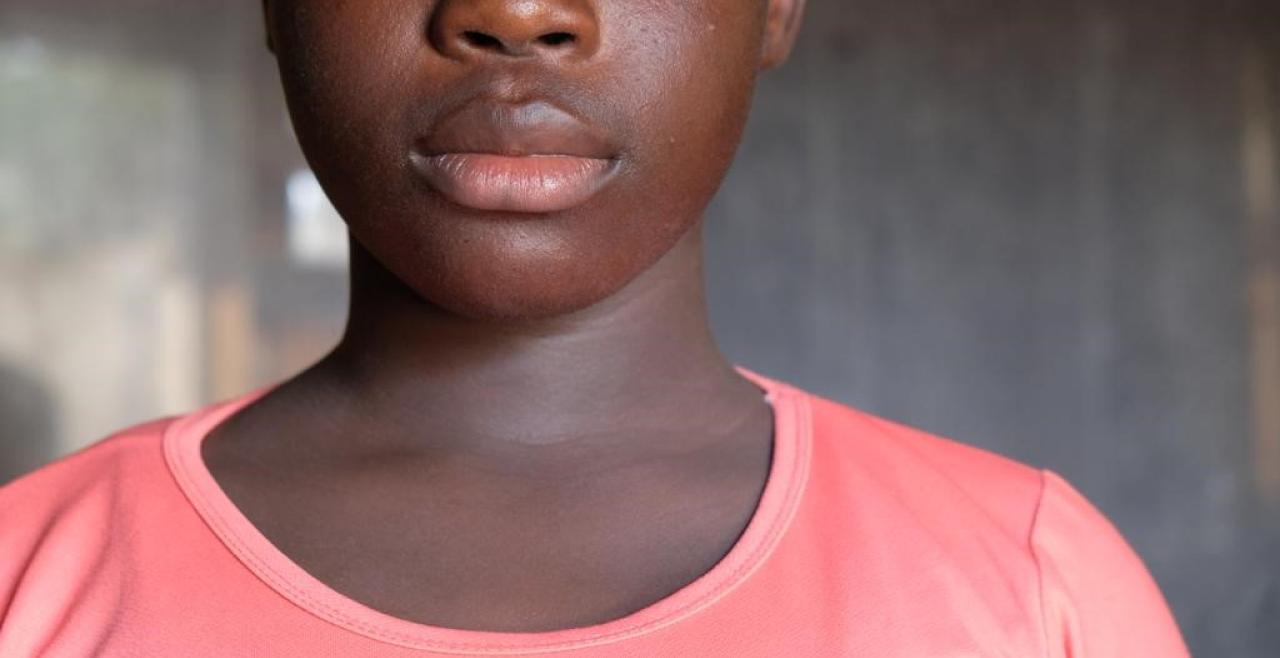In Nigeria, brave girls are ending the silence around gender-based violence

LAGOS STATE, Nigeria - 12-year-old Tubosun* is awaiting justice after she summoned the courage to speak out against her stepfather who repeatedly sexually assaulted her.
She sits on a sofa with tears flowing down her face as she hums a song. The atmosphere is tense and quiet. Other girls joined her in the emotional song titled, 'It doesn’t matter what I have been through - I matter'.
She was just 7 when her stepfather started to touch her inappropriately and eventually raped her.
When Tubosun mustered the courage to tell her mother, she was told to keep quiet because her stepfather would stop paying her and her siblings’ school fees if she reported him to the police.
The years passed and one day in school, the Spotlight Initiative supported Child Protection Network visited Tubosun's school to sensitize the pupils on the Child Rights Act. For Tubosun, learning about her rights as a child for the first time gave her the courage to speak out despite her mother’s threat to disown her.
After Tubosun explained what had happened, she was taken for medical examination. Her stepfather was arrested, charged in court, remanded in prison, and is now awaiting the court’s verdict. Several attempts to engage Tubosun's mother on the case have failed - she refuses to support her daughter. Tubosun’s mother finally abandoned her at an orphanage, choosing to side with her husband instead.
According to the 2014 Violence Against Children in Nigeria national survey, sexual violence against girls is a widespread problem in Nigeria and ending violence against children, especially girls, needs to be a national priority.
Monisola Alabi, Superintendent of Police, Officer in-charge of Gender at the Police Command Ikeja, Lagos state, explains that over 10 cases of sexual abuse cases of girls are reported to the police every day but with only eleven family support units catering for over one hundred divisions all over Lagos state, and with limited funds from the government, there is a need to expand resources. This includes the need for a 24-hour hotline to handle and manage all the incoming cases.
Many Tubosuns have no one to come to their aid. The 2007 Assessment of Violence Against Children at the Basic Education level in Nigeria states that sexual and physical violence accounts for the majority of violence against children in schools and children, especially girls, often do not know that violence and sexual abuse violates their rights.
UNICEF, through the EU-UN Spotlight Initiative, is working with the government to train the police and social welfare systems in the application of child-friendly judicial practices and case management processes to provide appropriate care and support for survivors.
Tubosun hopes to be adopted by a loving and caring foster parent one day. She wants to be a doctor and a gospel music artist when she is older.
*Survivor’s name has been changed to protect her identity
By Mary Okpodu
